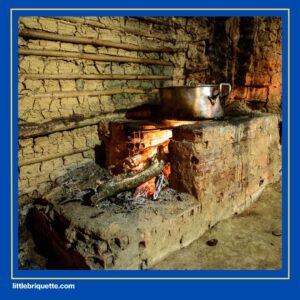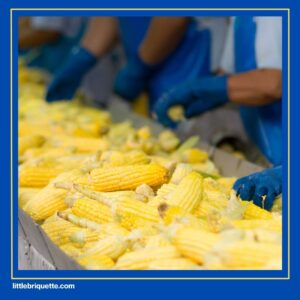Coconut charcoal briquettes are one of the alternative solutions to dwindling fuel sources. These briquettes are made from coconut shells, a material readily available, especially in tropical regions worldwide. The production process of charcoal made from coconut shell also utilizes unused waste. Typically, suppliers of this fuel source obtain coconut shells from coconut processors, where the shells would otherwise become waste.
Table of Contents
ToggleCoconut charcoal briquettes undoubtedly offer a solution to the scarcity of fuel sources in the world. This fuel is a form of renewable energy that is being developed as a replacement for conventional fuels deemed sufficiently optimal for supporting fire.
One of the primary benefits of coconut charcoal briquettes is their use as a substitute for petroleum. Additionally, this utilization reduces agricultural and forestry waste, providing additional income for the agriculture and forestry industries. Below are further details regarding the benefits and uses of coconut charcoal briquettes.
Benefits of Coconut Charcoal Briquettes
In the current era, many countries are seeking alternative energy sources due to the depletion of conventional energy sources like petroleum, which are non-renewable and are dwindling over time. A successful solution has been found to replace conventional energy with renewable energy known as charcoal made from coconut shell.
Coconut charcoal briquettes are processed as a substitute for petroleum. This is because coconut charcoal briquettes are a renewable energy source and environmentally friendly. Thus, their use in daily life is safer for cooking and other purposes.
In general, the use of coconut charcoal briquettes in daily life includes cooking, burning stoves, and industrial-scale grilling such as brick making and others. The benefits of using this fuel are as follows:
1. Non-Toxic

One of the benefits of using this renewable fuel is its non-toxic nature. This is because the production process of coconut shell charcoal is natural, using plant-based materials, making it safe to use. In addition to the main raw material, coconut shells, the manufacturing process includes the addition of tapioca, derived from cassava, as a binder. Therefore, this fuel is safe and non-toxic.
2. Coconut Charcoal Briquettes as a Renewable Alternative Energy

The primary material used in making coconut charcoal briquettes, coconut shells, has many benefits. After processing coconut shells into a fuel source, they become a substitute for firewood. Consequently, there is no longer a need for indiscriminate tree felling for firewood. The abundance of coconut shells in tropical countries makes the raw material relatively inexpensive. Additionally, this fuel source has a longer burning time due to the high calorific value it produces, making the cooking process faster compared to firewood.
3. Environmentally Friendly

The noticeable impact of charcoal made from coconut shell is their environmental friendliness. The use of coconut charcoal briquettes as cooking fuel emits minimal smoke when burned, making it environmentally friendly by reducing air pollution. This is because the production materials consist of coconut shells and tapioca, derived from cassava, which do not produce smoke when burned.
4. Additional Income

For small entrepreneurs such as micro, small, and medium enterprises (MSMEs), alternatives made from readily available materials become a new source of income. This provides additional income for coconut farmers and micro-business operators who market coconut charcoal briquettes. Furthermore, for micro-businesses, the availability of this fuel source also serves as a solution to reduce expenses by obtaining an alternative fuel source at a more affordable price.
Charcoal made from coconut shell currently have a wide market in various countries, making them an export product with high value that can boost the country’s foreign exchange reserves. Furthermore, coconut charcoal briquettes that have been burned and subsequently become ash can still be used by farmers as organic fertilizer rich in minerals and essential elements for plants.
Uses of Coconut Charcoal Briquettes
The existence of alternative fuel sources from renewable energy has several uses for household and industrial needs. As a fuel source, coconut shell briquettes are used for combustion processes classified as alternative energy sources. Below is a further explanation of the uses of coconut shell fuel:
1. Household Fuel

The primary use of charcoal made from coconut shell is as fuel in households, such as for cooking using traditional stoves or hearths. Before the advent of renewable energy innovations, traditional stove fuel consisted of firewood, which is still widely used today due to long-standing community habits. However, the use of firewood for cooking fuel contributes to deforestation and environmental degradation.
The presence of coconut charcoal briquettes as a substitute for firewood will undoubtedly save forests and restore green environments. As mentioned, charcoal made from coconut shells has high and stable heat levels, speeding up the cooking process. Additionally, this renewable energy fuel has a high durability when used for cooking fuel due to its rapid burning process, resulting in longer-lasting charcoal briquettes.
Apart from cooking, charcoal in households is also typically used for barbecuing. Barbecuing activities commonly involve grilling sausages, beef, chicken, or other meats. The use of charcoal is highly popular for barbecuing activities because it burns longer and more evenly than regular wood charcoal, producing minimal smoke and ash, making it suitable for use. Another aspect that makes coconut charcoal briquettes suitable for cooking is their lack of a strong odor.
2. Food and Beverage Industry

The use of charcoal in the food and beverage industry is usually by food processors who then sell to consumers. Industries that commonly use this fuel include smoking processes for fish, meat, cheese, and others. This speeds up the smoking process by providing a stable heat level and a characteristic aroma without producing excessive smoke.
Apart from smoking industries, this fuel can also be used for grilling purposes. Culinary businesses or restaurants often use coconut charcoal briquettes for grilling processes. This is because this fuel source provides better flavor and consistent heat compared to other fuels such as firewood.
3. Ceramics and Metal Industries

In addition to cooking processes, fuel made from coconut shells is also used for metal melting processes because it provides high temperatures and helps efficiently and quickly melt metals. The ceramics industry also often utilizes coconut charcoal briquettes in firing processes to produce high-quality products.
Those are the benefits and uses of briquettes made from coconut shells. There are numerous benefits provided by this renewable innovation fuel, making it the best alternative to avoid rapidly diminishing non-renewable energy sources.
High-Quality Coconut Charcoal Briquette Suppliers in Indonesia
After understanding the uses and benefits of coconut charcoal briquettes, finding high-quality suppliers becomes a sought-after aspect. One of the suppliers of high-quality coconut shell charcoal from Indonesia is Little Briquette. Little Briquette offers the best products that can be shipped to various countries worldwide. To conduct transactions for purchasing fuel from this renewable innovation, please contact the information below.

